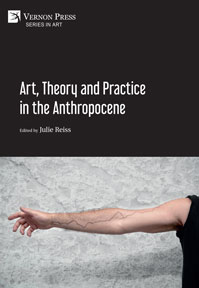The end of the Western Civilization? The Intellectual Journey of Humanity to Adulthood
by Hippokratis Kiaris (University of South Carolina)
Purchase this book
(click here to change currency)
Civilizations can be perceived as living human beings that are born, mature, age, and ultimately die and disappear, passing their legacy to the future generations. These transitions may be projected to the different stages of cognitive development of children. The Western Civilization, which embodies our current state of cultural advancement from the Classic Greek to the modern period, can be paralleled by the gradual transitions of human beings toward adulthood. From this perspective, the ancient Greek era resembles the toddler years of humanity at which the first “why”-type questions are being asked. The theocratic period that followed until the Renaissance can be seen as our childhood, when people lived their lives under the tight boundaries set by religious authorities. The period spanning from the Enlightenment until almost the end of the 20th century can be considered as our teenage years when people rediscover their past, are liberated from superstition, and set the path forward based on reason by a manner at which the distinction between plausible and feasible is vague. Within this scheme, postmodernism also finds its place in our teenhood. The last few decades, from this perspective, signify our entrance to adulthood at which major questions are considered answered, or at least settled, and the only path forward perceived as feasible is the one that is followed already, a state that is bringing us closer to our intellectual aging and its inevitable death. Some signs of aging-related pathologies are already manifested in today’s technology-intensive society. By identifying our intellectual age and by appreciating our health status, we may be able to proactively delay or even avert our intellectual aging and death.
List of Figures and Table
Instead of Introduction
Chapter 1
The Ontogeny of the Western Civilization
Civilizations
The Ontogeny of our Intellectual History: An Outline
The Decline of the West
Theocracy in the West and Theocratic Civilizations
Physical Transition to Adulthood, Niche Construction and Sustainability
A Scheme for an Eastern Ontogeny
Chapter 2
Axial Age and the Toddler Years
Presocratic Philosophy
Sophists
Socrates, Plato, and Aristotle
Hellenistic Philosophy
The Period of Naivety
Toddlerhood
Chapter 3
Childhood and Theocracy
Intellectual Life in the Middle Ages
Intellectual Developments, Crises, and Prosperity
Childhood
Punishments and Rewards
Chapter 4
Teenage Years and the Enlightenment
The Intellectual Leap Forward
Song Dynasty and Why China did not Industrialize 500 Years Before the West
The Teenage Years
Postmodernism
Chapter 5
Adulthood
Realism and Feasibility
When did We Become Adults?
Political Inquiry
Technological Progress and Intellectual Interrogation
Globalization, Financial Sustainability, and Environmental Concerns
Chapter 6
Inherent Problems of our Adulthood
Reason, Adulthood, and Postmodernism
Dehumanization
The Crossroads of Aging
Chapter 7
The Future
Forecasting the Biological Future of Humans
Forecasting the Future
Accepting the Future
Crafting the Future
Bibliography
Index
Professor Hippokratis Kiaris studied biology at the University of Athens and received his PhD at the University of Crete. After performing postdoctoral research at Tulane and Harvard Universities, he taught at the University of Athens and is now at the University of South Carolina.
Western thought, Western civilization, future outcomes, historical context, Greek philosophy, Western tradition, Piaget, cognitive development
Subjects
History
Philosophy
Series
Series in World History
Related services
Find in a library near you Download print-friendly flyer Download HQ cover Find in Bookshop.org Find this title in AmazonSee also
Bibliographic Information
Book Title
The end of the Western Civilization? The Intellectual Journey of Humanity to Adulthood
ISBN
978-1-64889-704-7
Edition
1st
Number of pages
118
Physical size
236mm x 160mm

![The end of the Western Civilization? The Intellectual Journey of Humanity to Adulthood [Paperback]](/file/20682/c362a6d63cfed2dc03108e47d75311de/1684755210.jpg)






